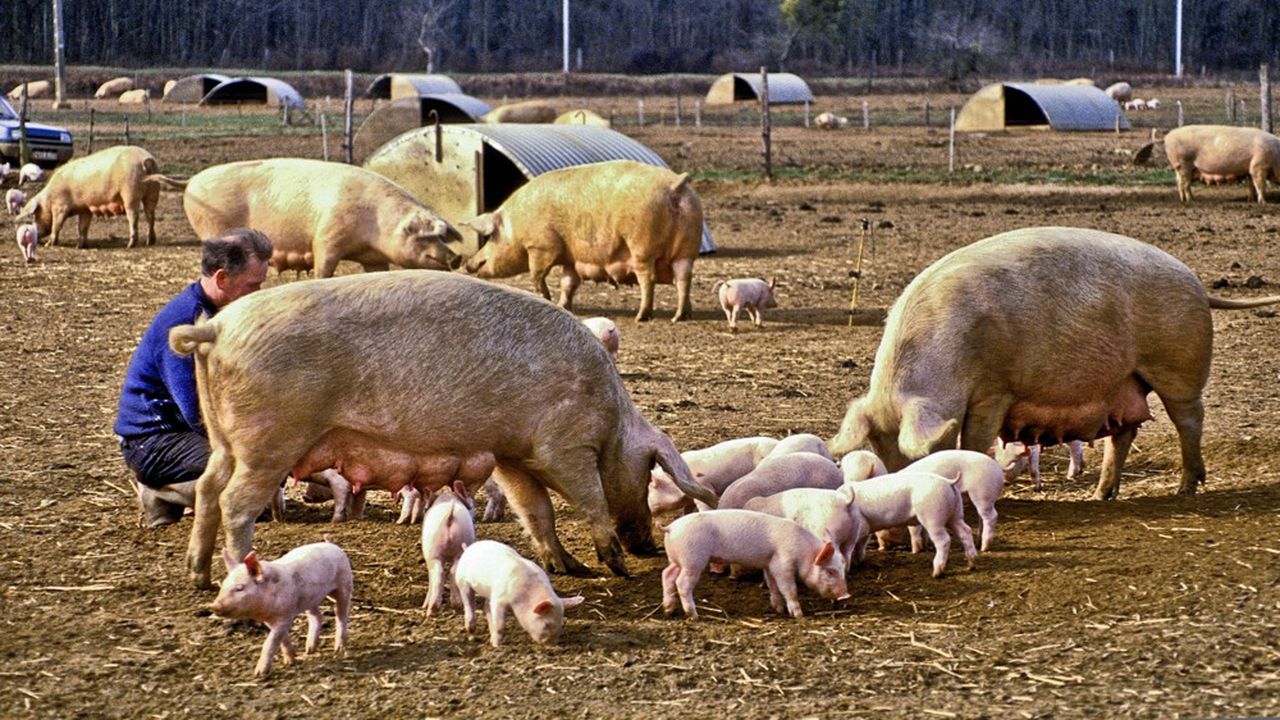Posted on Feb. 2021 at 11:55
The success of free-range eggs, free-range poultry and meat from pigs raised outdoors is well established. It is in tune with the times. However, the existence of these alternative production methods is complicated by the proliferation of viral attacks. Whether it is bird flu or swine fever, the cause of repeated pandemics, exceptionally serious for animals and a source of economic disasters.
Resourcefulness
Pig breeder in Isère, Mathieu Laupin has been required by the public authorities to double his electric fences to bar the access of wild boars often vectors of the swine fever virus. But he believes he has already provided sufficient protection and is reluctant to do more. Not so much because of the high cost of the new fences, which the State partially finances, as the additional work involved.
“I put 3 kilometers of electric wire around my 4 hectares. I have to clear all year round to keep the current going. That’s 30 hours of work every three weeks. Doubling the fence amounts to doubling the working time, and would force me to hire an employee, ”explains the breeder.
The new biosecurity standards that came with the threat of swine fever also force him to replace the wooden huts he made for pigs with tin shelters suitable for washing and disinfection. Beyond the additional work and investment, the young breeder considers this new obligation “absurd” in the open air. “I make crawl spaces for six months”, more than enough for in terms of sanitation, he says. For him, there is no doubt that the new standards do not take into account alternative breeding models.
Random wins
Outdoor pig farming is struggling to develop in France. It does not weigh more than 5% of the total production. Often the result of people not from the agricultural world, who have “more difficulty in obtaining financing”, according to the Confédération paysanne, it has made it possible to rehabilitate old breeds (such as the Noir de Bigorre), whose taste qualities are the ‘unanimity but which were abandoned because they were ill-suited to the objectives of productivity and low prices for consumers. The farms are very small, the working conditions more difficult and the profitability fragile. Success goes hand in hand with a solid training, the ability to cook the meats and organize direct sales.
In the poultry and egg sector, the outdoors weighs much more. “20% of poultry are raised outdoors in France against 5% in other European countries”, according to Eric Cachan, president of the Syndicat des labels (Synalaf). The sale of so-called free-range eggs represents 60% of purchases in supermarkets, according to the inter-branch. Distributors have made it a selling point.
In the South-West, a large number of farmers supplement their end of the month by raising ducks to make foie gras and confits. Repeated avian flu attacks have destroyed many of her small free-range farms. And pose, as in the case of pork, the problem of investments in buildings to protect birds. Stéphane Le Foll, when he was Minister of Agriculture, granted an exemption to farms with less than 3,000 ducks. Today the controversy between breeders is in full swing, the small ones implicating the large ones in the propagation of the virus, by their concentration and the movements between sites.
–

